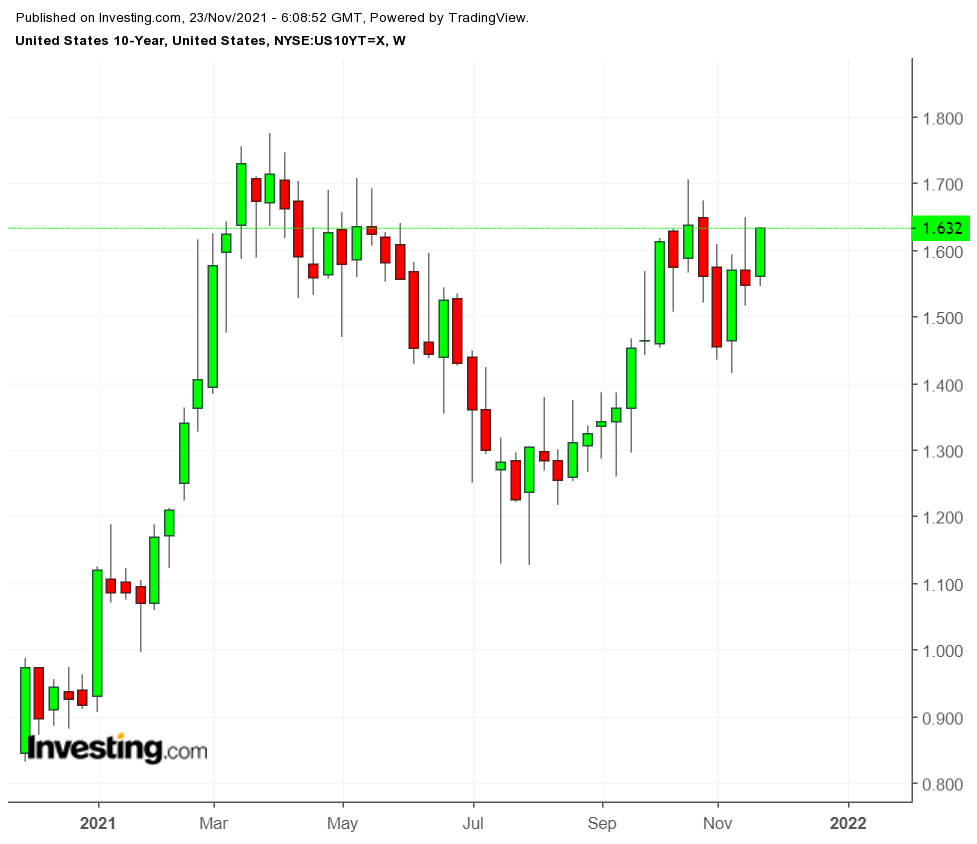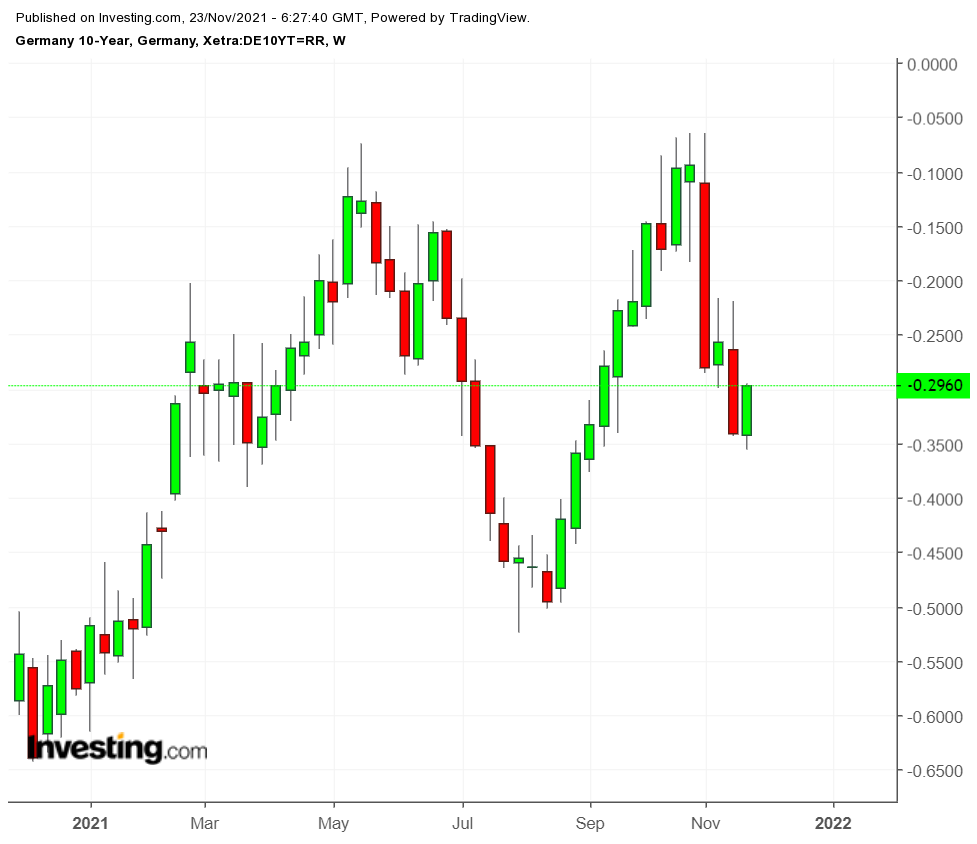The decision by US President Joseph Biden to nominate Jerome Powell for a second term as chair of the Federal Reserve—when it finally came on Monday—was widely expected. But there was enough uncertainty that stocks staged a relief rally and bond yields rose as investors sold them off.

Yield on the benchmark 10-year Treasury note gained more than 8 basis points, including an overnight increase that accelerated once the White House made its announcement. The yield moved from below 1.55% to above 1.63% over the first day of trading on Monday, in a week cut short by the Thanksgiving holiday.
Investors were counting on Biden to opt for stability and continuity despite lobbying by the progressive wing of the Democratic Party against renominating Powell. The uncertainty came because it is difficult to gauge how much influence the progressives have and Biden has been somewhat erratic in his policy choices.
Earlier Tightening Likely; US Treasuries Reforms A Possibility
The nomination, which should enjoy broad bipartisan support for confirmation in the Senate, affirms Powell’s leadership at the Fed and frees him to become more aggressive in fighting inflation, if that seems necessary. The prospect of an earlier tightening of monetary policy becomes more likely with each monthly report on inflation and neither a faster reduction of bond purchases nor a mid-2022 hike in interest rates can be excluded.
Powell is not expected to change his tune after months of claiming inflation is transitory, but he has begun to hedge his remarks and reaffirm the central bank’s willingness to hold the line on inflationary expectations.
Critics say the Fed is making a bad call on inflation and delaying action too long, but it is Powell who is sitting in the driver’s seat and the affirmation of getting a second term will strengthen his credibility.
A conference last week at the New York Fed focused on proposals to reform the market for US Treasuries to avoid the turbulent trading conditions in March 2020 when the COVID-19 pandemic hit.
Gary Gensler, chairman of the Securities and Exchange Commission, suggested that proprietary trading firms should have to register with the SEC as they have taken a bigger role in trading because the banks that act as primary dealers face new limits on their balance sheets in the wake of the financial crisis. Gensler also recommended central clearing houses to smooth trading in Treasuries.
New York Fed chief John Williams said the dislocations due to the pandemic forced the Fed to introduce repurchase agreements up to $1 trillion and left it buying more than $300 billion of Treasuries a week at one point. The repo programs have now been made permanent, but officials think more needs to be done to strengthen resilience in Treasury markets.
Looming over the conference was the concern that rising inflation might lead investors to sell off Treasuries once expectations come unmoored, creating a new crisis in liquidity like last year’s.
European Bond Yields Slide As COVID Spikes
In Europe, a new wave of COVID-19 infections, bringing lockdowns back to some regions, tempered concerns about inflation, so that yields fell sharply Friday before recovering some ground Monday.

Yield on the benchmark 10-year German bond rose to minus 0.2945 in later trading Monday, a gain from minus 0.3500 in early trading but below Friday’s yield of minus 0.2610 before the steep decline.
The new COVID cases dampen the momentum that had been building for a hawkish turn at the meeting of the European Central Bank governing council in December.
